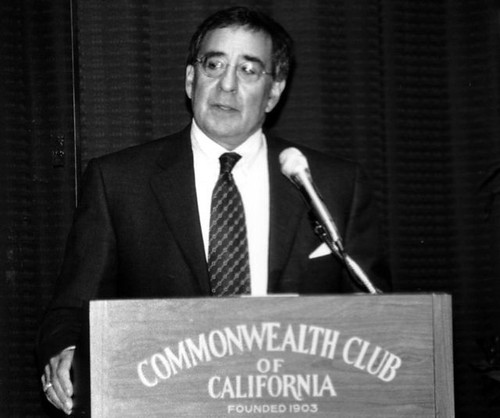Barry Bonds is back -- not with a baseball team, mind you, but in the news. With his perjury trial set to begin March 2, Federal prosecutors are beginning to throw heat at Baseball's tainted Home Run King.
The New York Times' Michael Schmidt reported Wednesday the existence of alleged steroid tainted urine samples taken from Bonds. Around the time that journalists Mark Fainaru-Wada and Lance Williams published the ground-breaking book, Game of Shadows in 2007, they spoke at The Commonwealth Club of California and made references to Federal authorities procuring evidence.
When Bonds testified before the grand jury in 2003, he denied using banned drugs," said Williams who continues to cover the story for the San Francisco Chronicle, "He said he took flax seed oil arthritis balm, and the prosecutors instantly knew he was fibbing and have taken considerable evidence on that point.
It can only be speculated what other evidence the Feds may have attained. Fainaru-Wada, who now writes for ESPN, and Williams both conveyed disbelief when the federal judge chose not to question Bonds' trainer Greg Anderson about the people to whom he supplied steroids, but instead questioned him about a 75-year-old San Mateo women and money laundering. According to the authors, simply asking Anderson to supply the names of athletes to the public record would have side-stepped much of the legal posturing still taking place two years later. (Listen to Fainaru-Wada and Williams discuss BALCO and Bonds here.)
Instead, unless the Feds sufficiently back Bonds into a corner where his best decision is to cop a plea, the Bonds saga may be entering into its climatic final act. Just so the entire San Francisco Bay Area does not feel left out, comes news that the crosstown rival Athletics will be sending the infamous Giambi Brothers -- newly re-acquired Jason and Jeremy -- to testify. Here's looking to the judge throwing the book at Jeremy for not sliding at home during the 2002 playoffs against New York.
–by Steven Tavares
Takes All Kinds: Stories of American Democracy - Commonwealth Club World
Affairs
-
Takes All Kinds: Stories of American Democracy Commonwealth Club World
Affairs







